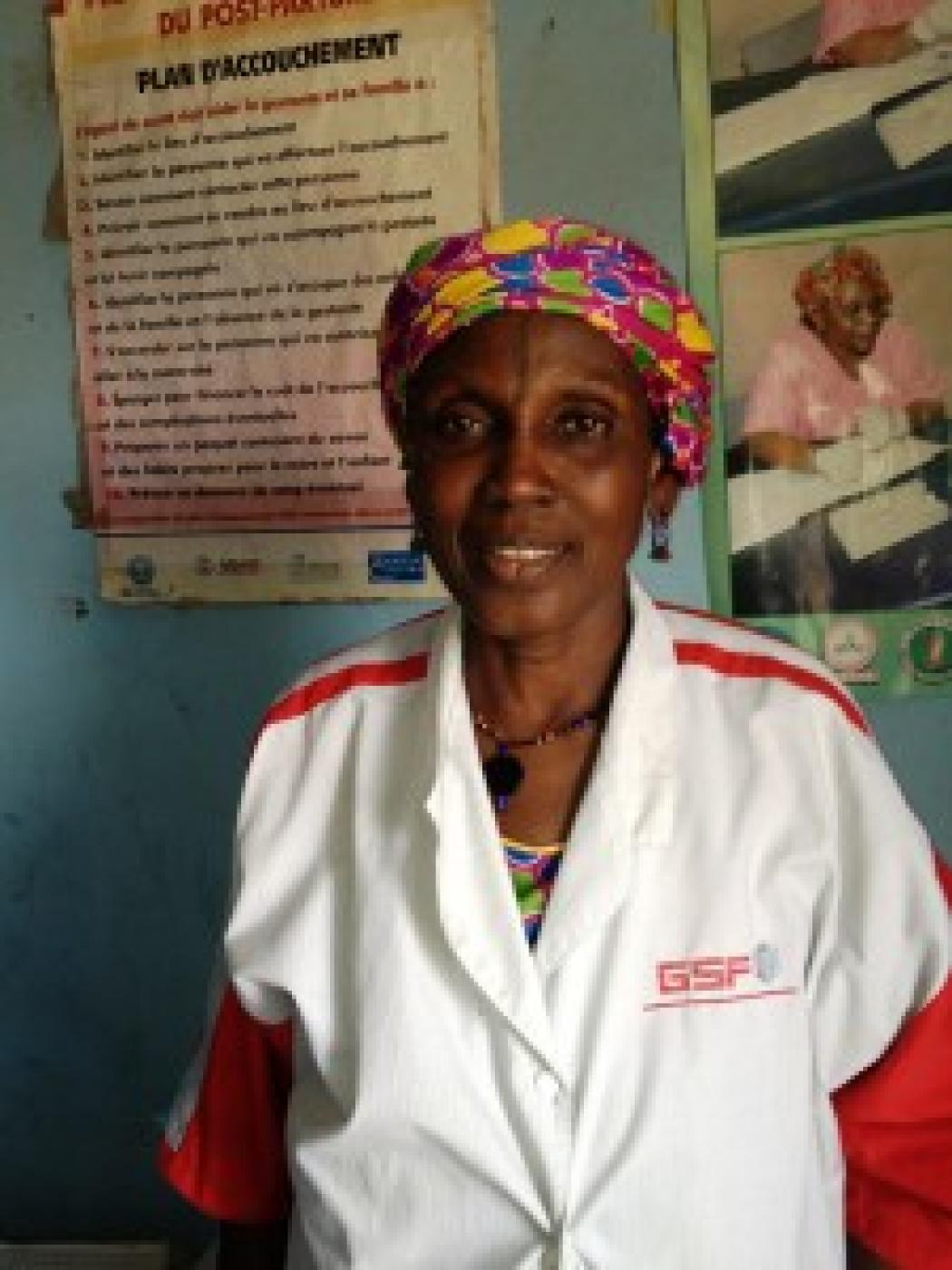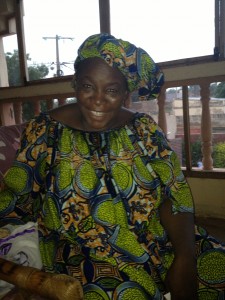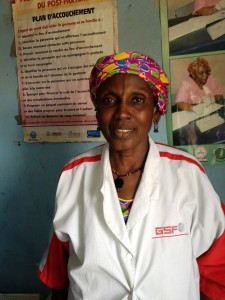The Matrones of Diema

By Anne Pfitzer, Jhpiego
“If I were to speak to a matrone like me before she goes for training, I would tell her to really pay attention, not to be afraid to ask all the questions she might have and when it comes to practicing [on models first, then clients], to really master the steps. The objective for which she is going, she must attain it. For this, she must have confidence in herself, be sure of what she says, that it is correct information, and speak to people with conviction.” -Karle Magassa, Malian Matrone
Proud. Dedicated. Courageous. Matrones—a cadre of auxiliary midwives with 6 to 12 months of pre-service education—staff the majority of community health centers in rural Mali. Because their salary is lower than that of health professionals with higher qualifications, they are sought after by the ASACOs, the health management committees that manage and finance these centers. Another advantage matrones offer is the smaller social distance between them and the women they principally serve. As a result, they are vitally important in Mali, both in terms of the services they provide and the number of lives they impact. There is much for them to be proud of in the work they do to combat Mali’s high maternal mortality ratio of 368 per 100,000 live births, according to the 2012-2013 Demographic and Health Survey.
Last year, I visited nine matrones in Diema District, a remote area close to the Mauritania border; it was a chance to have long chats about them and their work. We often found amused and surprised looks on the faces of the young physicians deployed in these facilities that we wanted to speak to their matrones rather than the physicians. I was there to learn more about their ability to apply skills they had learned in the active management of third-stage labor, essential newborn care, postpartum family planning and insertion of contraceptive implants. What struck me most as I talked with them was their determination and diligence in acquiring new skills. I came away with newfound respect for this under-appreciated cadre of health workers, and was transfixed by the stories they told to illustrate the challenges they face in their daily work.
Saran Keita, a matrone in Diema, told me about a woman she encountered recently who was the victim of an obstetric fistula. Following a successful treatment, her care providers gave her Jadelle®, an implant that provides effective, long-lasting, reversible contraception for women.
“After some time, she told her husband that she was carrying a heavy bucket of water and she felt the rod break. Unfortunately … [at a nearby health facility] they removed her Jadelle, and now, two months later, she is again pregnant,” Saran said. She knows that childbirth after surgery to repair a fistula puts the mother at much greater risk for fatal complications.
When the mother consulted with Saran for antenatal care, the matrone took one of the Jadelle implants and used it as an example. “We all really manipulated it and bent it. So I asked, ‘do you think it can break?’” Saran, thanks to her diligent training, was confident that the implant had not broken and should not have been removed.
She has martialed all the care providers in her area to follow the pregnant mother’s progress very closely, making sure they are prepared for the cesarean section she will need at the time of birth. She also has not failed to educate her and her husband about the healthy family planning options they might choose following childbirth. Given that the contraceptive prevalence rate is only 10% across Mali according to the DHS, healthy birth spacing and family planning are important interventions to ensure the health of mothers and their families.
The USAID-supported Maternal and Child Health Integrated Program worked in Mali to build the capacity of matrones in just that sort of situation. These efforts will continue under the new Maternal and Child Survival Program to strengthen additional skills of frontline workers in health centers and in communities.
Not only are the matrones grateful for the new skills, they’re also innovative in how they’re using them. I asked Saran how she reached women who gave birth at home—a sizeable issue in many rural communities across the country.
“Well, parents need to obtain a birth certificate, which they get from the [community health center],” Saran said, adding, “At that time, we insist to see the mother and take the opportunity to pass messages about birth spacing. Also, during newborn immunizations, we pass these messages.”
Soucko
Oura Soucko, a matrone in another Diema health center, said, “We really have to sensitize women about spacing births two to three years. And this helps me too! I [supervise] a lot fewer births than before; about 50 per month now, whereas before it could be between 60 to sometimes 75 a month.”
All of us in the Maternal and Child Survival Program team are well aware of the impact such family planning education can have on a mother, her children and entire families. As we approach World Contraception Day on Sept. 26, the impact of family planning cannot be understated as an intervention that can drastically change lives.
In the same way, we are proud of, and grateful to, health workers like the matrones of Diema, who provide education and health services to improve the lives of so many women, children and families across the world.


